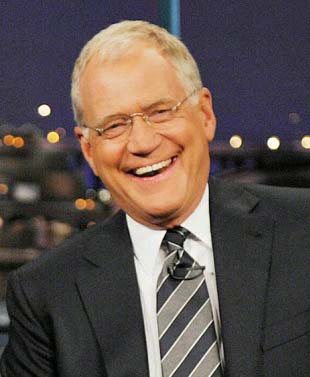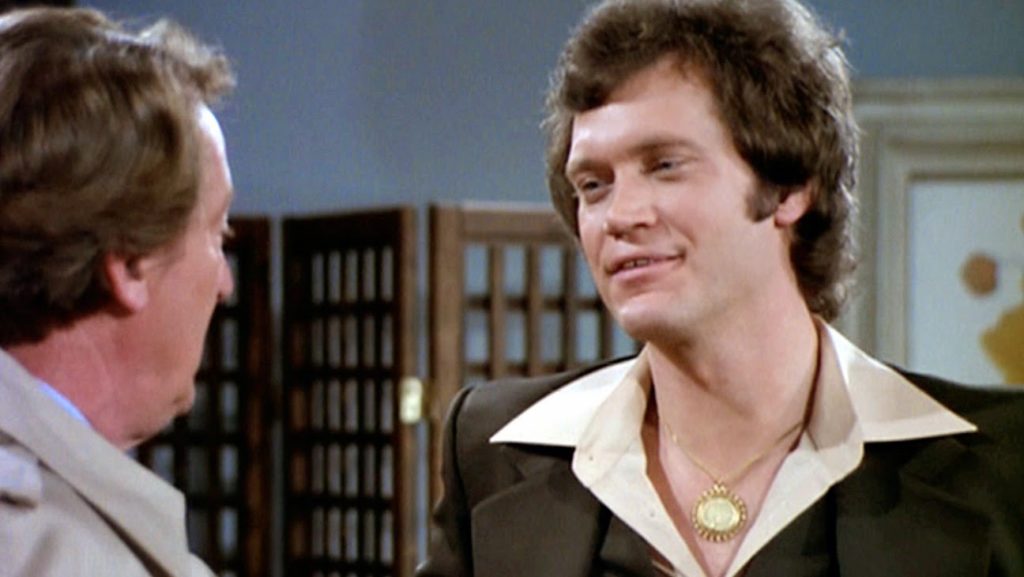
The first time I saw David Letterman was during a 1979 episode of “Mork and Mindy. Dave played the leader of an EST-like encounter group who bullied his followers while endlessly bragging about his money and fancy car. Naturally, the point of the episode was to see Mork’s innocent goodness defeat Dave’s corrupt worldview, but Letterman – though not much of an actor, as I’m sure he’d admit – really delivered when it came to the smarminess of the role. Seventies hairdo, gold medallion and wide collar aside, I wanted to see more of this guy.
Thankfully, I didn’t have to wait long. Letterman’s ill-fated morning show aired during the summer and early fall of 1980, and I watched every episode I could. (School was out, and I had nothing better to do.) Credit my mom for seeing it one day and encouraging me to tune in, figuring a weirdo like me would like a weirdo like Dave. It wasn’t quite like the late night shows he became famous for, more a satire of a talk show than even the loose interpretation he would eventually do. But it was funny as hell, consistently surprising and like nothing I’d ever seen before. I was sad (if not surprised) to see it cancelled, figuring I’d never see anything quite like it again. (I had such fond memories of Dave’s morning show that, in the pre-Internet 1990s, my friend Neal (a fellow Letterman fan) and I spent hours during a trip to Manhattan huddled in front of a video screen at the Museum of TV and Radio, watching a videotape of the morning show’s final episode. It was worth it just to see the resumes of the soon-to-be-unemployed crew used as bumpers for the commercials.)
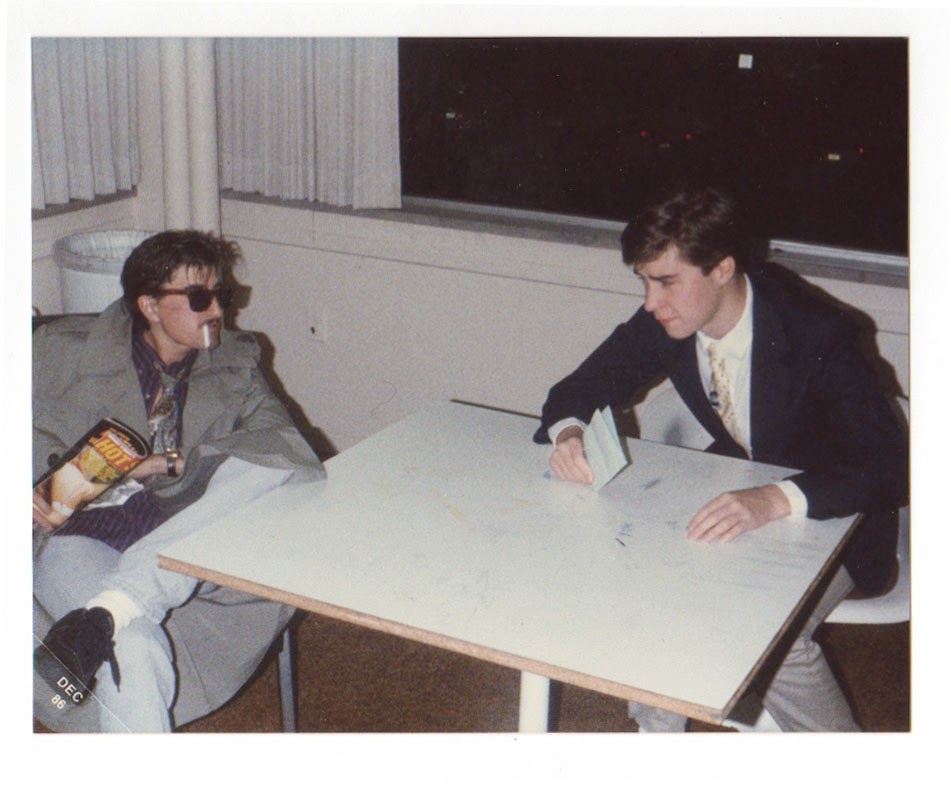
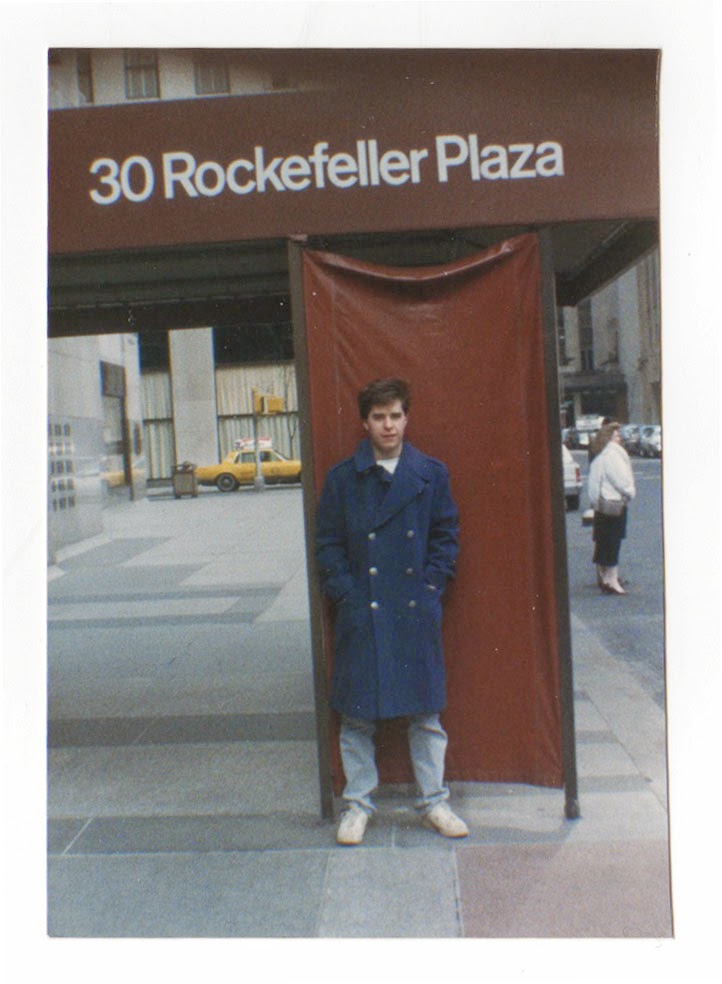
Those were the golden years, when surreal running gags like The Monkey Cam and The Dancing Waters made every episode a must-see. I’d always thought Letterman (and, by extension, his writers), crafted hilarious jokes, but it was during this era that his outlook – comedic and otherwise – began to shape my outlook. It was sarcastic, sure, and goofy, but it was more than that. Dave seemed alternately bemused, annoyed and amazed that he was on TV, and he behaved like no other talk show host. People remember the pre-planned comedy bits, like the suit of Velcro, tossing things off a five-story tower or Stupid Pet Tricks, but what I really loved about “Late Night” was the stuff between all that, the banter with Paul, the endless goofy looks Dave would shoot the camera and the strange things he would say just because they seemed funny to him. People criticize Dave (especially these days) for not caring about the audience and just trying to amuse himself, but I’d take a thousand hours of that sort of thing over whatever Jimmy Fallon, James Corden and the rest of what passes for late night is doing. Cher famously called Dave “an asshole” on her first “Late Night” appearance, but he was only an asshole compared to other hosts who sucked up to every celebrity that sat down next to them. Dave was, more than anything, just being honest. If he was fascinated by a champion grocery bagger, you saw it. And if he was annoyed by Madonna’s never ending attempt to be “shocking,” you saw that, too.
And speaking of Cher, one of the most memorable musical performances in talk show history came when she and Sonny reunited on Dave’s show to sing “I Got You, Babe.” One of the best things about Dave’s shows is that, when they did get serious or emotional, it was the real deal. Sometimes that meant he was cranky or obviously bored. But at other times, it was gold – comedy and otherwise.
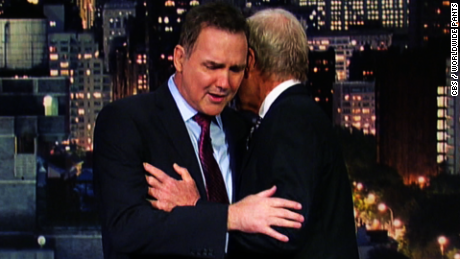
I’ll admit, I rarely watch Dave these days, besides tuning in for the annual Christmas show, with Jay Thomas tossing the football and telling his Lone Ranger story and Darlene Love belting out “Christmas (Baby Please Come Home).” (And, by the way, how wonderful is it that Dave devoted a good chunk of his holiday show every year to comedy and music from two old friends?) I’ve only been watching “The Late Show” lately to see the final days of a true TV icon. It’s telling that someone like Norm MacDonald, one of the funniest guys on the planet and, sometimes, one of the darkest comedians around, actually broke down when he was doing his final “Late Show” set last week, actually telling Dave “I love you” – and meaning it. It’s more than the fact that Norm got his start with an appearance on Dave’s show or that he remembers the first joke he ever heard Letterman deliver, way back in his own standup days. It’s that Norm knows – and I know – that after Dave leaves the airwaves Wednesday, there’s not anyone who can fill that spot. Stephen Colbert is great, and a smart, original comic mind in his own right, but Dave made the world possible for guys like Colbert … and Jon Stewart and Conan and Craig Ferguson and Jon Oliver and The Onion and “The Simpsons” and “Funny Or Die” and every other force for comedy, well-known or obscure, that mattered in the last 30 years.
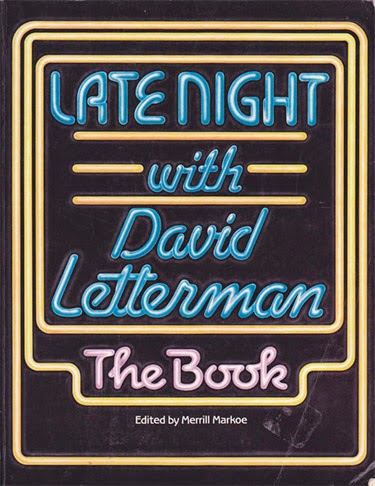
There are a million things I’ll remember about Letterman, most of them admittedly from the “Late Night” era and most of them admittedly goofy: The Thrill Cam, the Monkey Cam and the ill-fated Tiger Cam. The time he replaced the pencils and the breaking glass sound effect with steel pencils and actual glass. The time he was looking for a sound to replace that breaking glass effect and somehow got a voice saying “Hey, brother man, what it is, what it is.” “Late Night With David Letterman: The Book,” which was so shoddily produced that Dave advised prospective buyers to ask the bookstore “where they keep the cheap, crappy looking books.” Larry “Bud” Melman welcoming arrivals at the Port Authority. Just Bulbs. Just Shades. Vince McMahon (yes, that Vince McMahon) welcoming the arrival of the “Late Night Baby.” Paul’s annual rendition of Cher’s rendition of “O Holy Night.” Chris Elliot as The Guy Under the Seats. Director Hal “Gurtner” Gurnee. Dave asking “how about something from Greek mythology” before throwing fluorescent bulbs off a five-story tower. Dave interrupting a prime time “Today” broadcast with a megaphone and really, really pissing off Bryant Gumbel.
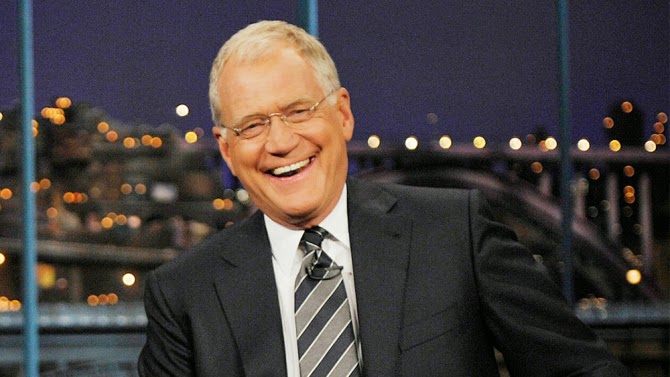
But more than anything, I’ll remember Dave himself. Like him or not, and many did not, you never got the feeling that he was faking it for the camera. Back in college, when I was first getting obsessive over “Late Night,” I read an article about the show that described Dave as being not exactly the nicest guy in the world off-camera. This was surprising and, I’ll admit, a little upsetting, but over the years I’ve come to appreciate the fact that he hasn’t had his rough edges rubbed off by showbiz. For that reason, the moments when he actually got serious and sincere — after the attacks of Sept. 11, when he returned from heart surgery and when he discussed his extramarital affairs — actually meant something. Most talk show hosts are so desperate to connect with their audience that their hearts rarely leave their sleeves, and they’re always eager to show how very much they care. Dave only acted like that when he really did care, and that’s why those moments stand out. (This, I’ll admit, is why it annoys me when Dave pals around with Oprah, the undisputed queen of fake, needy sincerity.)
So consider this long, rambling post a very sincere “thank you” to a man who will never read it. Since I was a teenager, my sense of humor and general outlook on life has been inspired by what I saw on “Late Night.” I learned to be skeptical and sarcastic, of course, but it was more than that. It was a way of viewing the world from just a bit to the side of the main action, realizing that, for the most part, it was a lot sillier and less worthy of admiration than everyone assumed. But I also learned while life could be painful and boring and unfair, it could also be pretty damned funny if you looked hard enough for the joke. And, every so often, the small, forgotten, goofy things were more than funny — they were evidence that, believe it or not, life wasn’t so painful, boring or unfair after all.
Thanks, Dave. For everything.
